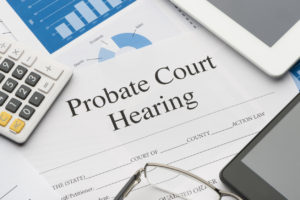Nevada Probate
Nevada Probate Procedure
Probate in Nevada, much like elsewhere, is the legal process by which a court supervises the orderly and proper distribution of a deceased person’s assets to creditors, heirs, and beneficiaries. If a valid will exists, assets are distributed accordingly. If there is no will, assets are distributed pursuant to state statute.
Under Nevada probate law, there are different types of administration depending upon the size of the estate. Therefore, it is important for heirs to familiarize themselves with the rules and procedures of probate. As with other important legal matters, it is suggested that you seek out a competent Nevada probate attorney to assist you with the probate.
Types of Probate Administration in Nevada
An estate may or may not need administration to be settled, depending on the estate’s size:
- Estates below $20,000 need only file an Affidavit of Entitlement (aka Small Estate Affidavit)
- Estates below $100,000 may be set aside without complex administration.
- Estates of greater than $100,000 and not exceeding $200,000 require an abbreviated summary administration.
- Estates above $200,000 require a full administration.
Steps to Take
The following steps are recommended upon a loved one’s death:
- Locate the will or other estate planning documents.
- Contact a Nevada probate lawyer to open probate as soon as possible in order to protect and secure the deceased’s assets.
- Obtain several copies of the death certificate, which will be used to open the Nevada probate, collect insurance, transfer joint tenancies, etc.
- If a will exists: Contact the executor named in the will. Under Nevada probate law, the will is to be filed within 30 days of the death, with the county clerk. The executor need not be a Nevada resident.
- If no will exists: An administrator should be nominated and then approved by the Nevada probate court. An administrator may be a bank, public administrator, friend, relative, or an attorney. The Administrator must be at least 18 years old and a Nevada resident.
- The named executor/administrator should then: (A) Inventory and secure all assets. (B) Determine debts owed and identity of known creditors
Do all assets have to be probated?
No. Certain assets are not subject to probate in Nevada, such as:
- Assets held in Joint Tenancy or as Community Property with Rights of Survivor-ship
- Assets held in a Trust
- Life insurance
- Pension benefits, IRAs
Nevada Probate Fees
The personal representative and the Nevada probate attorney negotiate the probate fee. This may be on an hourly basis or based on a small percentage of the estate. If based upon a percentage, Nevada probate law provides a specific schedule to follow:
- 4% of the first $100,000
- 3% of the next $100,000
- 2% of the next $800,000
- 1% of the next $9,000,000
- 0.5% of the next $15,000,000
Above $25,000,000, to be determined by the Nevada probate court
Pros and Cons of Probate
The advantages of probate include court supervision and the protection from theft or misuse. The disadvantages include the delay, inconvenience, and costs.
Call Today for more information.

Get Started Here
Fill out form, request a consultation topic and we will go through your rights during the call.
